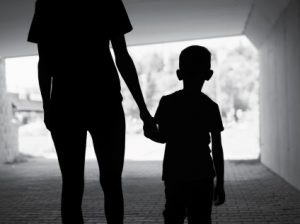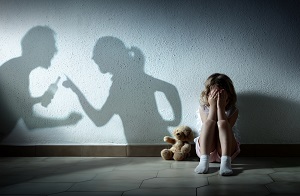According to the authors of Influencer: The New Science of Leading Change (Joseph Grenny et al, 2013), there are 6 sources of influence: personal motivation, personal ability, social motivation, social ability, structural motivation, and structural ability.
I will explore these sources of influence as they relate to vital behaviors for co-parenting with less stress and more peace.
- Personal Motivation – Why does someone want to do something? Does it make them feel better? Many people experience overwhelming stress in high conflict co-parenting. This kind of chronic stress impacts health, work, and relationships. It definitely feels better to have less stress in one’s life!
- Personal Ability – Can they do it? Do they have to the skills? Communication and conflict resolution skills taught in our monthly co-parenting webinars can make communication less triggering between parents and provide new ways to successfully defuse conflict. We encourage parents to focus on working together to raise whole, healthy, happy children. Being in one’s own integrity with regard to respecting the child’s other parent and honoring one’s word to respect the parenting time schedule (which includes being proactive to communicate when a commitment can’t be met – running late at a meeting at work, or weather / or traffic interfere) helps parenting time transitions go more smoothly.
- Social Motivation – What are your peers doing? Are they fighting with their children’s other parent or are they getting along? In many northern European countries, it is the cultural norm that parents share parenting after separation or divorce. There is also a higher percentage of people having children who were never married. Though if they split up, they still commit to raising their children together.
- Social Ability is the way we enable these vital behaviors. In the area of co-parenting, this is where peer to peer groups can be so valuable. When people see other parents successfully navigating daily co-parenting, they are motivated to do what these others are doing. Children do not want to be caught in the middle of their parents’ conflict. That actually feels terrible for children. Some get aggressive and bully others because they themselves are hurting. Some become withdrawn and drop out of activities they used to enjoy with friends. Others turn their hurt inward and get into cutting, or experience eating disorders. It’s important that court-ordered therapy to address the child’s situation also include the parents so that family dynamics can be addressed and tools provided to the parents to improve communication and resolve conflicts.
- Structural Motivation – CLI is working to share collaborative practices across Minnesota so that more families can benefit from having less costly, less difficult separations. Collaborative services are available in all areas to support families – family law, mediation, finance, therapy, and on-going support through parent coaching to enable Dads & Moms to co-parent with less stress and more peace. This collaborative approach reduces post-divorce conflict.
- Structural Ability – Do you have the tools to SUCCEED with co-parenting?a. First and foremost, sign a Commitment to Co-parenting at the time of separation/divorce. As parents, it’s in your hands – you and the other parent of your children – to move beyond the bitterness of your separation or divorce and find the courage to mutually support your children in maintaining healthy, loving relationships with BOTH parents and the children’s entire extended family.
Here’s some sample language you can use:
Commitment to Care – I am committed to the long-term well-being of our children. I understand that continued conflict with my ex-spouse/partner is destructive. I will agree to reasonable boundaries and interact with our children’s other parent in a respectful business-like manner so that we can BOTH continue to love our children and remain actively involved in their lives. While our intimate, romantic relationship has ended, co-parenting is forever.
If there isn’t a commitment by both parents, what’s getting in the way? Recognize mental health issues, substance abuse, and domestic violence. Provide treatment and support during recovery.
Otherwise look at social motivation – What are your peers doing? It’s time to create a NEW cultural norm of Shared Parenting! The best way to have the court order Shared Parenting is to have been sharing parenting all along since the day the children were born.
b. Another vital behavior for successful co-parenting is that information is shared. BOTH parents receive communications about schedules, appointments, practices, and events from schools, doctors, therapists, youth directors, and sports coaches. Know a provider or organization that isn’t set up to easily share information with both parents? Let CLI know if you would like to participate in our outreach across Minnesota.
Peaceful co-parenting is possible and our kids are worth it!

Adina Lebowitz, MA is a family mediator, parenting educator, and wellness coach. Her primary goal is to help families find less stress and more peace in their co-parenting. She supports parents as they are adjusting to a new separation or divorce, and continues to support them as co-parents whether they are facing day to day parenting challenges, or dealing with the impacts of stress on their lives. She is available to mediate bigger issues that impact their parenting plans like a move, job change, new relationship, or a child’s health challenge.
EHTC Family Mediation | Elan Health Twin Cities LLC
Phone: 612-499-8418
Email: adina@elanhealthtc.org
Website: https://www.elanhealthtc.org/mediation
Facebook: Co-parenting with Less Stress and More Peace https://www.facebook.com/groups/coparentingmorepeace



 children and families.
children and families.










